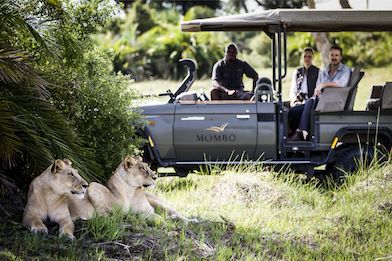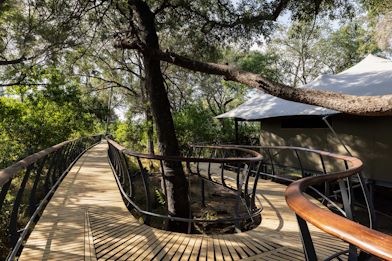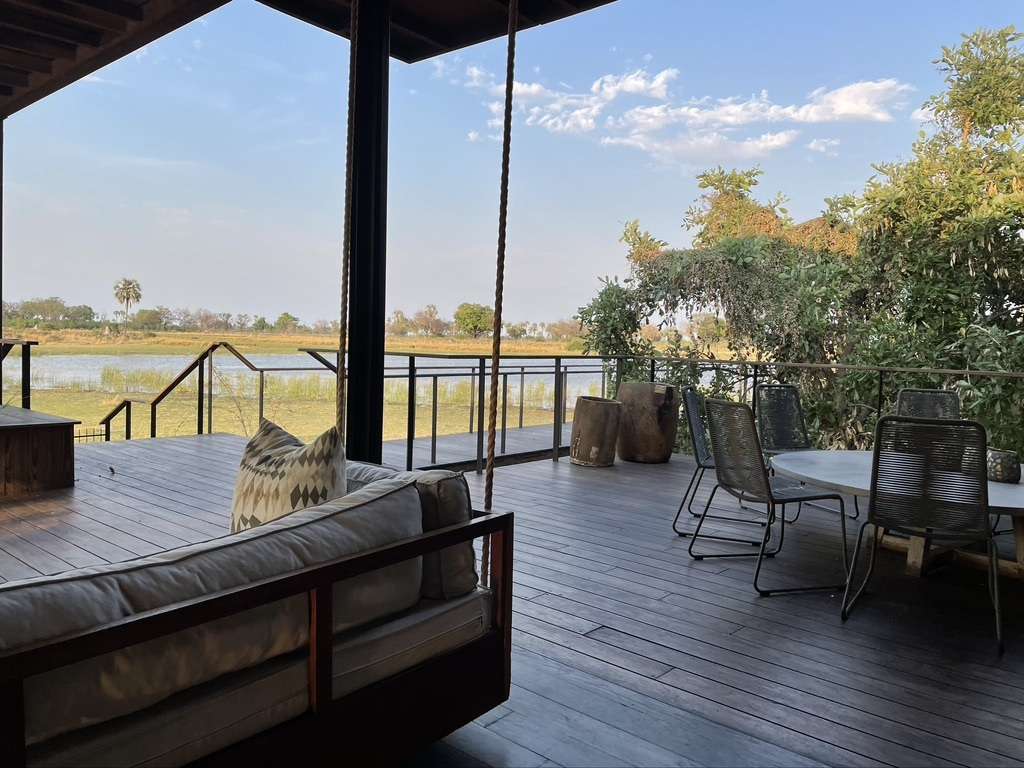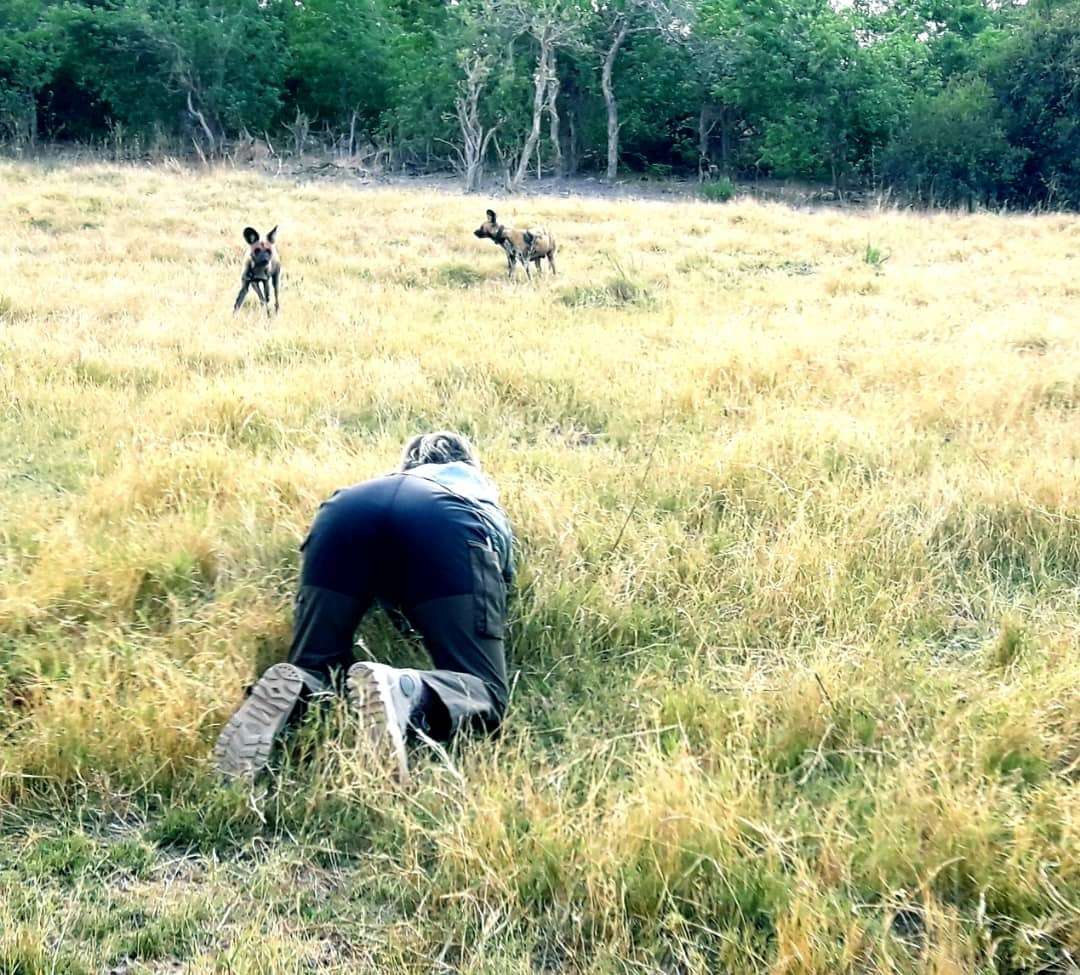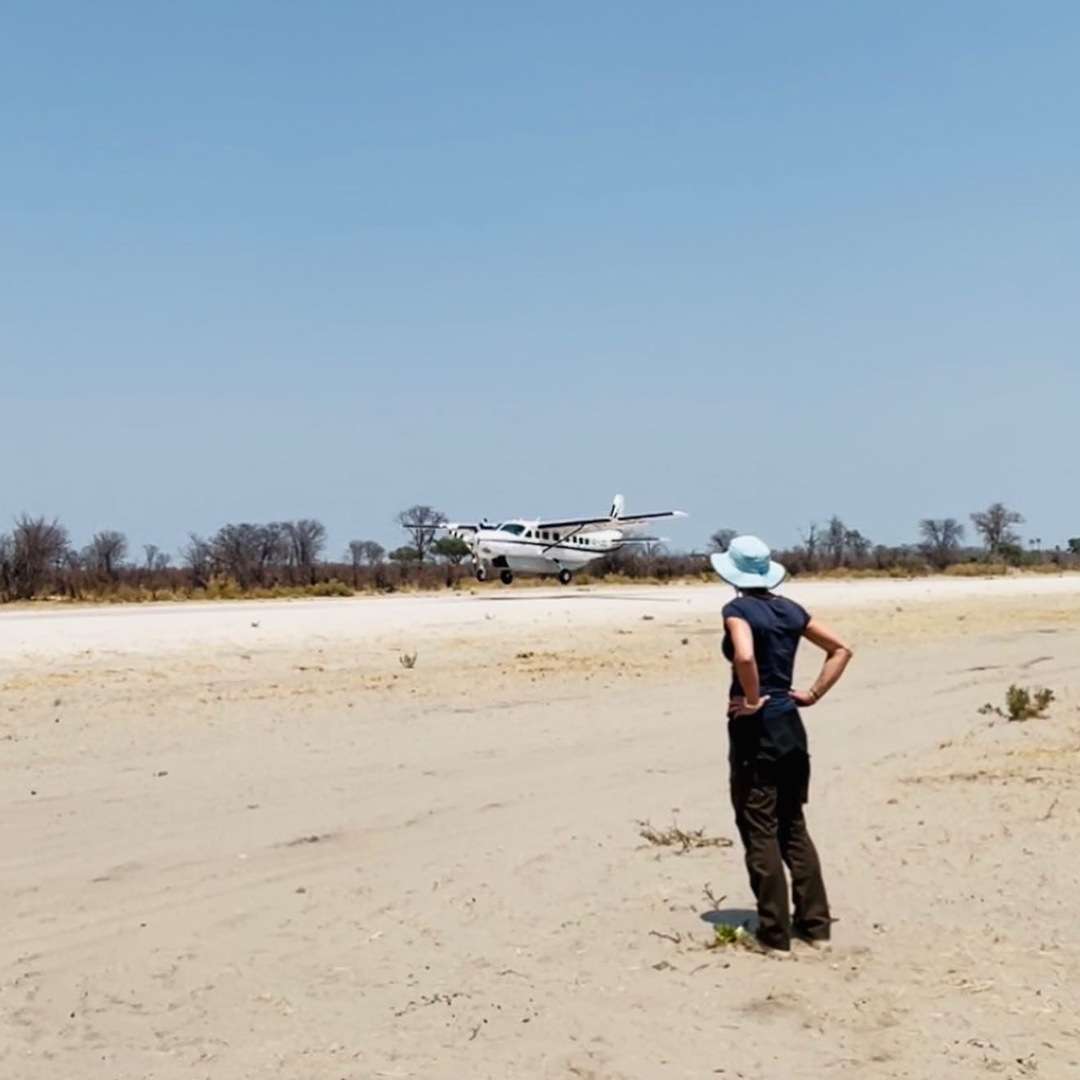I'm not yet sure whether deep in my heart I wanted to put on the skin of Mia Summer, the reclusive main character of my debut novel Witkind, or whether I finally wanted to hear the soundtrack of the African wilderness again after two years of corona patience.
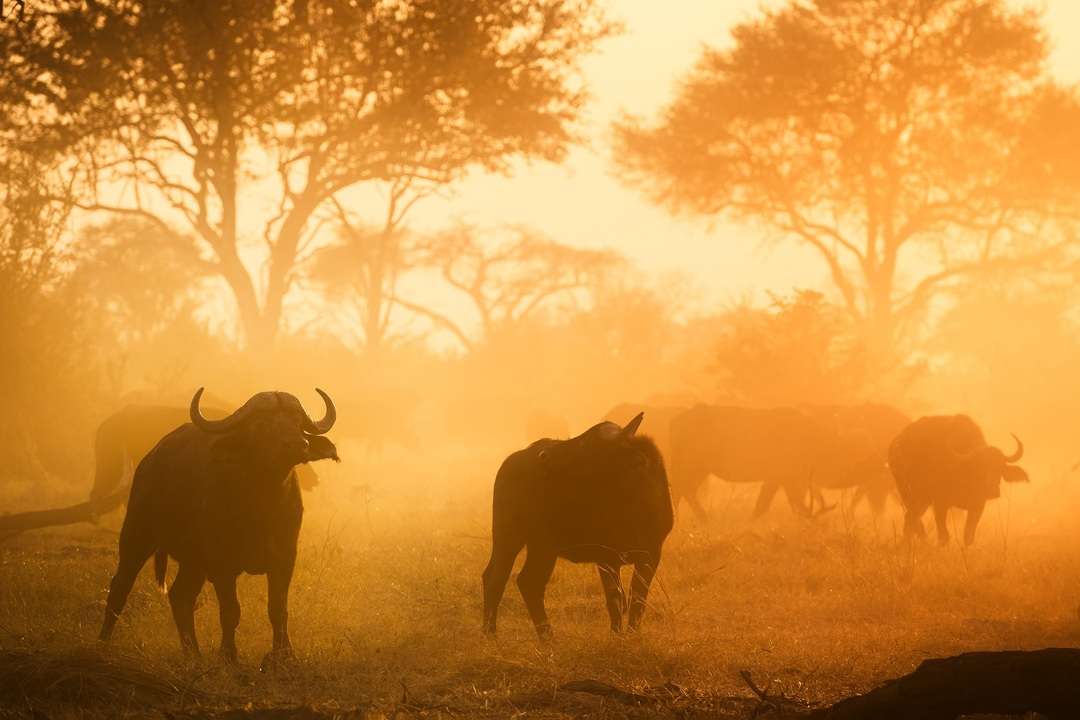
One thing quickly becomes clear to me: Wilderness Safaris will once again amply exceed my many years of African travel experiences. My first destination is Qorokwe Camp, located in the magical Okavango oasis of Botswana. This small-scale luxury retreat in the wilderness will become my new home for three precious days.
At Maun International Airport I board the 10-person Cessna 208 Caravan. When I look back at the photo that was taken when I got on the plane, I see an adventurous look in my eyes. "The wilderness is waiting for me”.
I take the seat behind the pilot, who is preparing for our departure. Behind me sit Canadian and American travellers who will be flown to other locations.
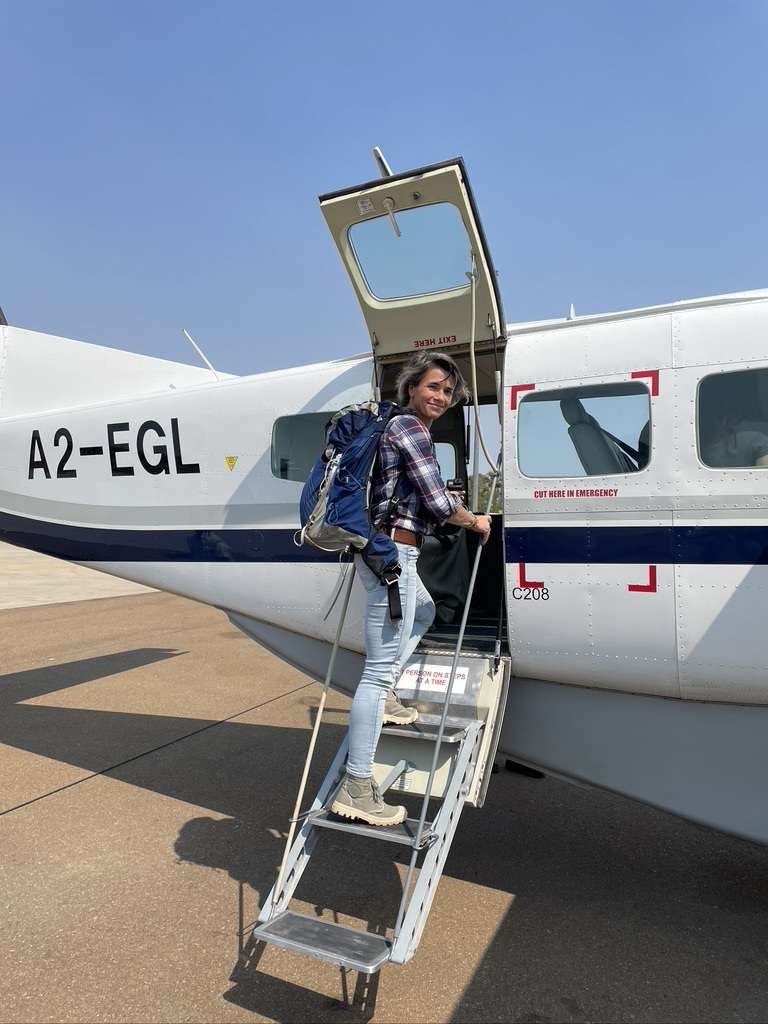
"Is that spot free?" I ask cautiously, pointing to the empty seat next to the pilot. The man has to laugh. "Do you want to sit there? That's okay”. Before he's finished speaking, I take my seat belt off. My fellow passengers laugh out loud at my enthusiastic response, but they all shake their heads when I ask if one of them would like to sit in the front. I have to promise them that I will stay away from the instruments, and take my place in the front right with a big smile.
Not much later we fly like an eagle over the beautiful river channels that together form the Okavango Delta. In the rainy season, from mid-November, these narrow waterways from the north are replenished by rainfall in Angola and the structure and vegetation will change temporarily. The animals make grateful use of this green wealth of food. I see a herd of elephants moving steadily below us, while the shadow of our Cessna relieves them for a moment from the scorching sun. Further on, a number of giraffes gallop, an unusual scene, as if moving in slow motion.
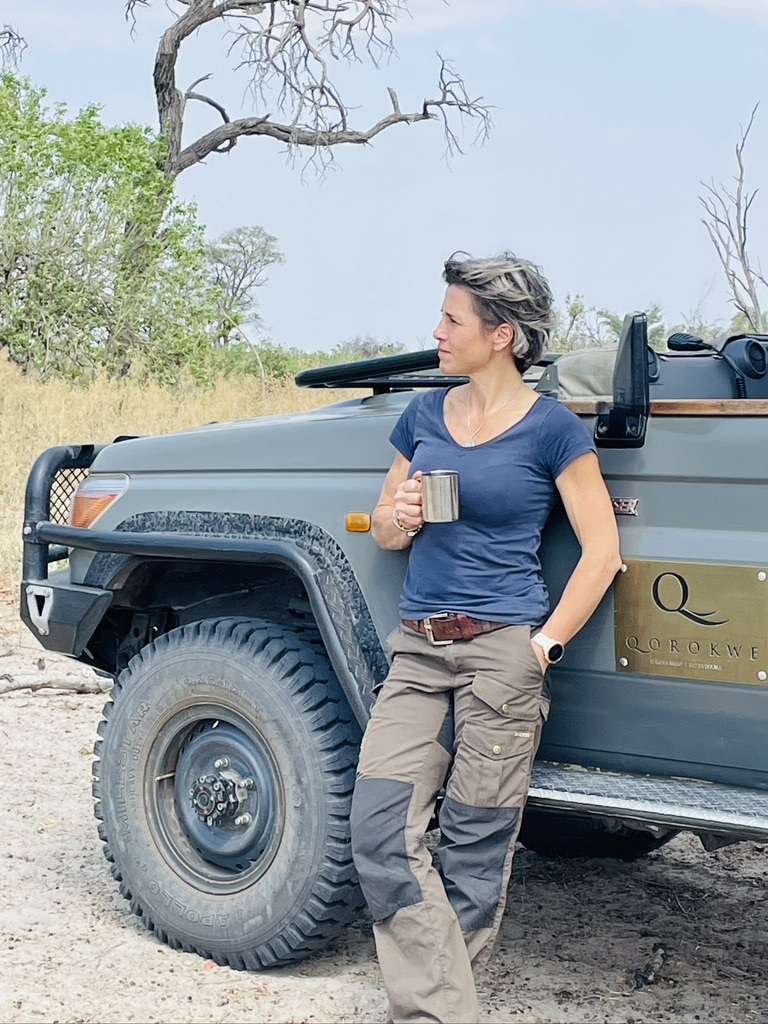
When I, together with my private guide Tshabo, make a road through the loose sand in the open all-terrain vehicle, I see the Cessna make a curve in the air and disappear from view. During the half-hour drive to Qorokwe, Tshabo says that he was informed in advance about my greatest wish: to observe the African wild dogs. He summarises the story of my novel, in which this special wild pack plays an important role. I am impressed, my mail has reached the right person as hoped.
Through the bushes I see a glimpse of a beautiful wooden building: a refined design with African looks and one with nature through the choice of materials and colour. When we get closer, the entire staff is waiting for us on the veranda, beaming. I feel very welcome.
“Dumela”, I proudly say my only Setswana word. “Good day”.
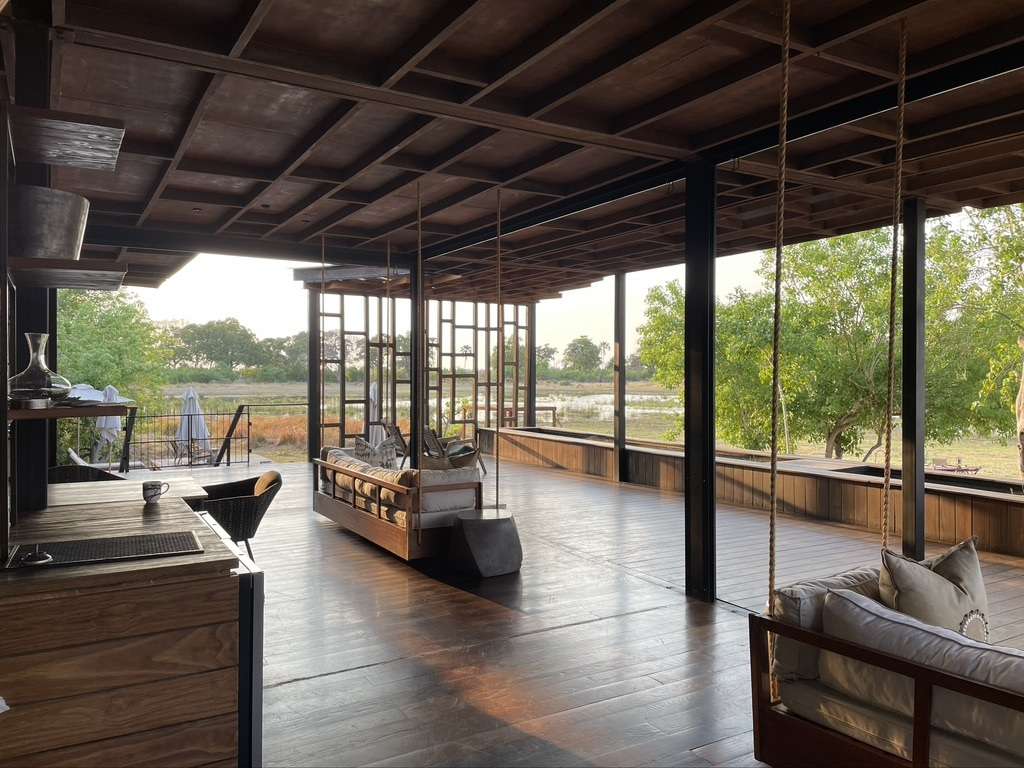
"You are the lady who wrote a book about a Dutch girl who disappears into the wilderness”, says one of the friendly employees. He lifts my bright yellow travel bag from the car and nods to the platter with the welcome cocktail that his colleague offers me. I smile and take a sip of the fresh lemon-mint blend. "That's right”, I say modestly. This royal welcome makes me feel like I already have a string of bestsellers to my name…
That afternoon I go on a game drive. I feel privileged to have Tshabo by my side as a wildlife expert and private guide. I ask him endlessly about the herd of elephants and buffalo that we admire up close along the way, and I diligently make notes in my “writing bible”. If you think you've seen and know everything, my experience is there are always new things to discover, and that's why trips like this will never bore me and always enrich my knowledge.
Driving along narrow tracks and through thick undergrowth, Tshabo suddenly puts his finger to his mouth, and I swallow my next question. As we drive around the corner and a copper-brown expanse looms in front of us in the afternoon sun, I understand his reaction.
With open mouth I watch the playful puppies of a pack of African wild dogs.
"Wow”, is all I can say softly. One adult female doesn’t leave the side of the puppies. “The babysitter?” I whisper.
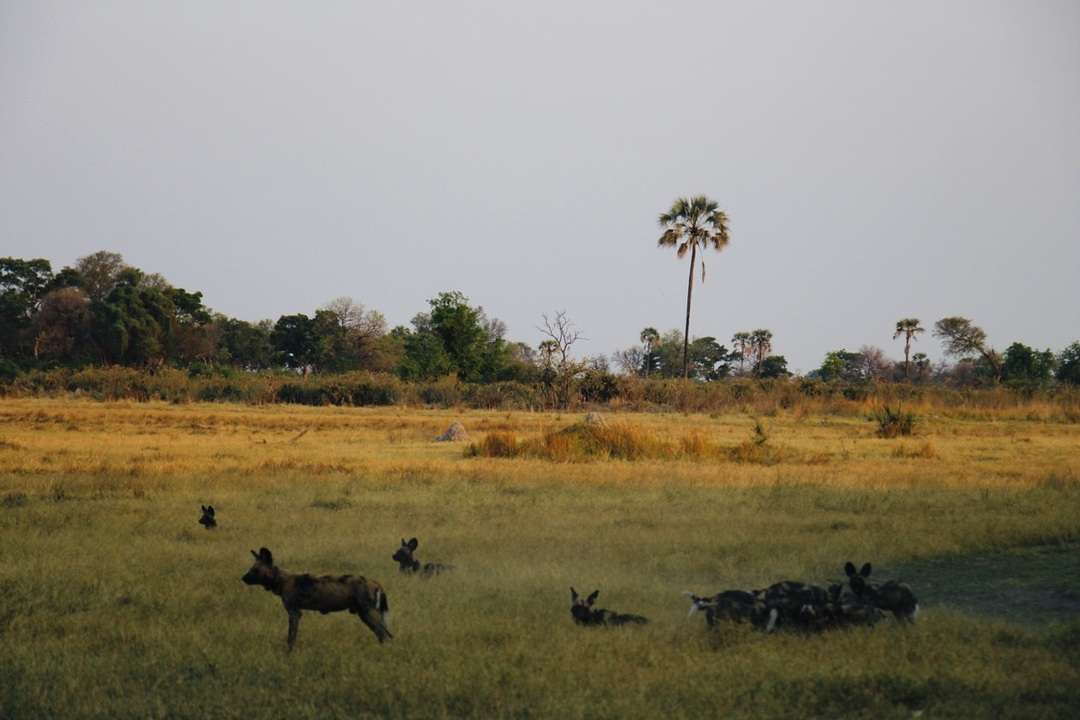
Tshabo nods and then points to a somewhat larger adult female.
“That must be the alpha female”, I say, waiting for his confirmation.
“You did a good job reading”, he laughs. “We named her Hillary.” He picks up his tele-lens camera to shoot some of these fascinating creatures himself in this perfect afternoon light. "You're in luck because we haven’t seen the pack for a while”.
It is the first time that I can spend so much time in peace with the animals that carry the story of my debut novel. Before I started writing Witkind, I did extensive research and wrote notebooks full of ideas and facts. But during the actual writing, the scenes, dialogues and situations emerge that ultimately make the plot beat like the heart of a good book.
At a short distance from the puppies are the other adults in a ring around the little ones. I also see the alpha male, named Jonathan. They are on the lookout, each facing a different direction. Scanning for the slightest movement in the bushes, they keep the area within the circle safe so the little ones can play undisturbed. Every so often one of the adults gets up and disappears into the bushes. No matter how carefully I look, I don't see any mutual communication about who goes when. "You go now, because I've already been. Now it's your turn”. None of that.
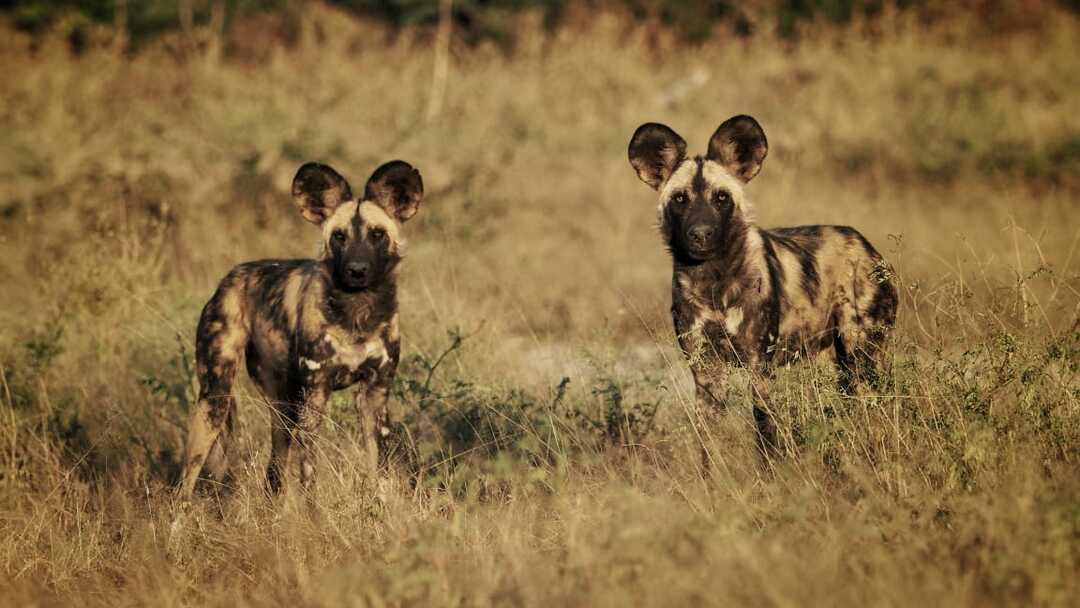
After a short while the absent wild dog returns and is received in the middle of the circle with a loud squeak by begging puppies. The adult animal then regurgitates whole pieces of meat that are eaten in no time by the puppies, after which the animal returns to its place on the lookout and lies down.
I had read about this process, but never seen it in real life. By the time the sun has set behind the horizon, all the adults in the pack have in turn risen to feed on their hidden prey and feed the pups so that they, too, go into the night with full bellies.


